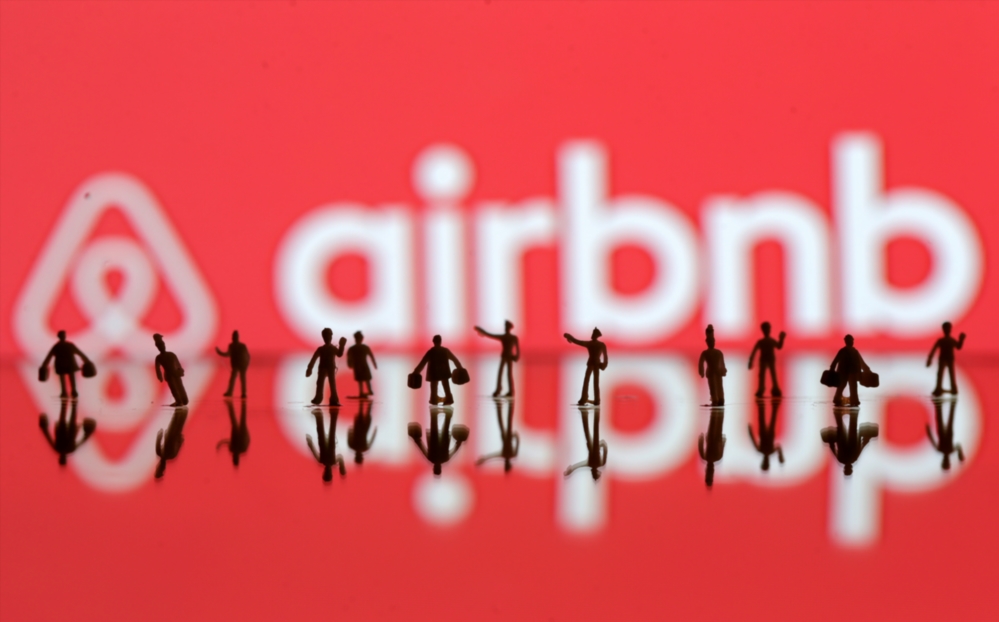With Airbnb filing paperwork for an initial public offering last week, it became the latest of many companies to pursue a confidential IPO, which experts say allows for more flexibility and can be more advantageous than the traditional route of filing an S-1 months ahead of time.
KEY FACTS
The confidential IPO can trace its origins back to President Barack Obama’s 2012 JOBS Act, which allowed companies with less than $1 billion in annual revenue to file S-1 IPO paperwork confidentially.
In June 2017, that $1 billion cap was lifted, allowing all companies to leverage the confidential IPO when attempting to go public, which proved to be a very popular option in the following years.
Companies like Uber and Lyft are the “two posterchildren for using this strategy,” as well as others like Spotify, Slack and Palantir, says Sandeep Dahiya, associate professor of entrepreneurship at Georgetown University’s McDonough School of Business.
Loading...
“The biggest advantage of confidential filings is withholding information from competitors for a few months, compared to a traditional filing that everyone could see,” explains Jay Ritter, a finance professor at the University of Florida who is known as “Mr. IPO” for his work on initial public offerings.
“The flexibility of timing and price range fluidity is a huge part of it—and even more so given the underlying volatility in the stock market today,” says Dayiha.
“Think of it as playing poker with the market: If companies pursue a traditional IPO, the market can deal them a very different hand in the 90 to 120 days leading up to when they’re scheduled to go public,” he adds.
If a company does decide to go ahead with an IPO after a confidential filing, they are required to file a public S-1 form just three weeks beforehand (rather than months ahead), but that still gives investors more than enough time to evaluate financials, says Ritter.
CRUCIAL QUOTE
“With a traditional IPO, once you file paperwork and the train has left the station, it’s hard to stop it,” says Dahiya. “That’s the beauty of a confidential IPO—there’s no set date and more flexibility.”
BIG NUMBER
So far this year, the average first day return for an IPO is 36%—the highest level since 2000, according to Ritter. “We’re on pace for not only the highest average first day return but also more doubling in price of any year since 1999 and 2000,” he adds.
WHAT TO WATCH FOR
Home sharing giant Airbnb is one of the most recent high-profile examples of a company pursuing the confidential filing route. By doing so, the company did not have to disclose any financial information or specify how many shares would be offered in its IPO—giving it far more flexibility than in a traditional S-1 filing. “Covid-19 was just brutal for the hospitality industry, so the fact that Airbnb feels like it can have decent enough performance I think is very encouraging,” says Dahiya. Meanwhile, it has also been widely reported that Airbnb might be in talks with billionaire investor Bill Ackman’s special-purpose acquisition company (SPAC) about a possible reverse merger. “That’s certainly a plausible scenario,” says Ritter, adding, “it makes sense for Airbnb to pursue a dual track strategy to improve their bargaining position both with Ackman and with Goldman Sachs and Morgan Stanley (the underwriters for its IPO) to play them off each other.”
KEY BACKGROUND
While IPOs were at a virtual standstill for much of the first half of 2020 because of the coronavirus pandemic, Airbnb is the latest to join a rush of companies going public amid the stock market’s rebound from its coronavirus recession low point in March. Among those who have successfully done so are music label Warner Music Group and insurtech startup Lemonade.
FURTHER READING
-Sergei Klebnikov,Forbes Staff
Loading...
